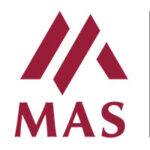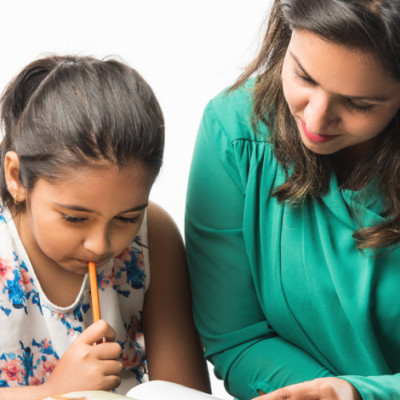Parent-teacher meetings are crucial for the academic and social growth of a child. At Manthena American School in the United Arab Emirates, we believe that regular check-ins between teachers and parents may help develop good relationships, spot areas for development, and develop a strategy for success moving forward.
However, to make sure that the discussions are fruitful and advantageous for everyone concerned, it is necessary to approach these sessions with the proper mindset and approaches. From the viewpoint of Manthena American School, we will address the dos and don’ts of parent-teacher conferences and offer best practices for productive dialogues.
Why are meetings between parents and educators important?
Parent-teacher conferences are crucial because they give teachers and parents a chance to talk about a child’s development in both academics and social skills. These meetings give parents a chance to get more involved in their kids’ education and learn about their kids’ talents, shortcomings, and areas for growth. Parent-teacher conferences can enhance a child’s general development and academic performance by fostering healthy relationships between parents and teachers and developing a strategy for the future.
Do’s:
1. Prepare ahead of time:
For productive parent-teacher conferences, preparation is essential. Parents and teachers are encouraged to check student progress reports and to bring any questions or concerns they may have with them when they visit Manthena American School. Both sides can guarantee that the discussion is fruitful and centered on the child’s development and future success by taking the time to prepare before the meeting.
2. Start on a positive note:
Setting the tone for a fruitful parent-teacher conference is doing so positively from the outset. At Manthena American School, we urge instructors to start the conversation by highlighting the student’s development, talents, and accomplishments. This promotes a healthy working connection between parents and teachers, generates a feeling of partnership, and creates a relaxed setting for talking about any issues or potential areas for growth.
3. Listen actively:
Successful parent-teacher conferences depend on active listening. At Manthena American School, we promote active listening among parents, teachers, and other school personnel. This entails allowing each other uninterrupted speaking time, seeking clarification, and demonstrating sensitivity and understanding. Active listening can promote mutually beneficial solutions and outcomes for the child by fostering trust and a sense of teamwork.
4. Be specific:
In parent-teacher conferences, it’s critical to be detailed to ensure that both parties have a clear grasp of the child’s development and potential improvement areas. At Manthena American School, we urge teachers to give specific examples of how the student has improved academically and socially, as well as areas where they feel they need to do better. This enables parents to collaborate with the teacher to develop a strategy for the child’s future achievement while also assisting them in better understanding the child’s strengths and shortcomings.
5. Set goals:
Setting goals is a crucial element of effective parent-teacher conferences. At Manthena American School, we promote collaborative goal-setting with parents, teachers, and students to identify the child’s academic and social needs and skills. These objectives should be clear, measurable, and reachable and might be either short- or long-term. Parents and instructors can collaborate on a shared vision for the child’s achievement by creating goals together and tracking progress along the way.
6. End on a positive note:
In parent-teacher conferences, it’s crucial to conclude on a good note to emphasize that both sides are focused on the achievement of the child. At Manthena American School, we urge instructors to provide a summary of the child’s development and opportunities for growth before concluding meetings by talking about the child’s strengths. This facilitates the continuation of a cordial and cooperative relationship between parents and instructors and paves the way for more fruitful exchanges in the future.
Don’ts:
1. Avoid using negative language:
At Manthena American School, we think that maintaining a pleasant and fruitful relationship requires avoiding negative language in parent-teacher conferences. Instead of using derogatory language that can put parents on the defensive, teachers should offer constructive feedback and concentrate on certain areas that need work. Parents are more responsive and cooperative when communicating with them in a positive manner, which will help their child’s academic and social growth.
2. Don’t make assumptions:
In parent-teacher conferences, our instructors at Manthena American School are counseled to refrain from making assumptions. Since every family and student is different, it’s critical to approach every conversation with an open mind and with no preconceived preconceptions. This enables a more open and fruitful discussion where both sides can express their viewpoints and cooperate to enhance the student’s intellectual and emotional development.
3. Don’t blame the child:
At Manthena American School, we counsel our instructors against pointing the finger at the student at parent-teacher conferences. Instead, we encourage teachers to pay attention to the children’s behavior or activities and to collaborate with parents to come up with solutions to any problems the kids might be having. This fosters an environment that is encouraging and helpful, which is crucial for a child’s development both academically and personally.
4. Don’t talk down to parents:
It’s crucial to keep parents’ feelings in mind when holding parent-teacher conferences. This can come off as patronizing and turn the conversation off-topic. Instead, make an effort to have a courteous conversation where the child’s needs and concerns are given top priority. At Manthena American School, we recognize the value of effective communication and work to ensure that all parties involved have a satisfying and fruitful experience at parent-teacher conferences.
5. Don’t rush:
Avoid hurrying the conversation during parent-teacher conferences to guarantee that all issues are covered. To create a good partnership in support of the child’s education, instructors and parents need to take the time to listen and thoughtfully reply.
Conclusion:
Parent-teacher conferences are essential for ensuring a child’s academic and personal success, to sum up. Parents and teachers can have fruitful dialogues and collaborate to address any difficulties or concerns by adhering to the dos and don’ts mentioned. It’s critical to keep in mind that good communication and a positive outlook can significantly contribute to the development of a collaborative and supportive learning environment.







